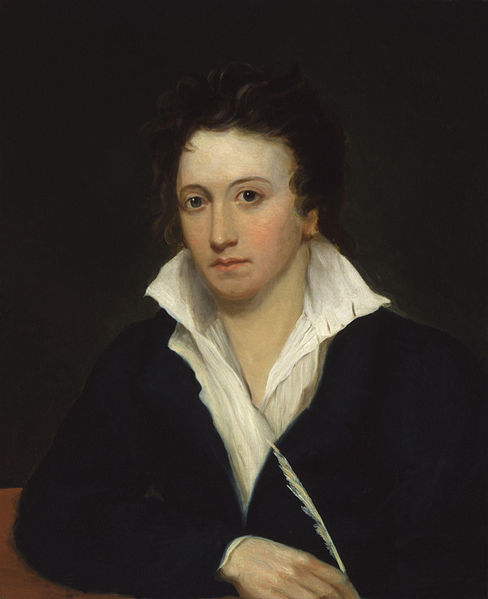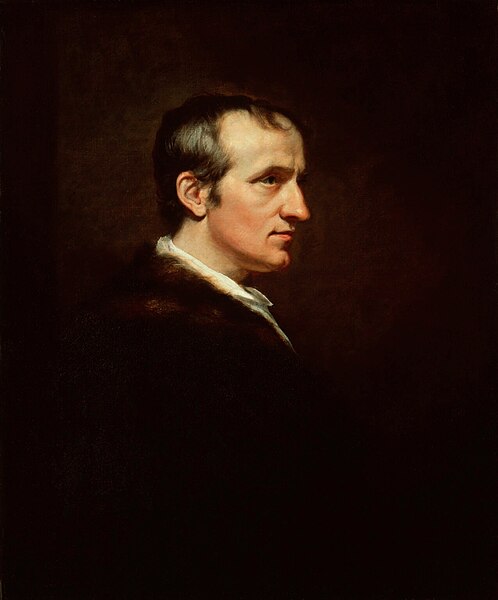Prometheus Unbound (Shelley)
Prometheus Unbound is a four-act lyrical drama by Percy Bysshe Shelley, first published in 1820. It is concerned with the torments of the Greek mythological figure Prometheus, who defies the gods and gives fire to humanity, for which he is subjected to eternal punishment and suffering at the hands of Zeus. It is inspired by the classical Prometheia, a trilogy of plays attributed to Aeschylus. Shelley's play concerns Prometheus' release from captivity, but unlike Aeschylus' version, there is no reconciliation between Prometheus and Jupiter (Zeus). Instead, Jupiter is abandoned by his supportive elements and falls from power, which allows Prometheus to be released.
Joseph Severn, Posthumous Portrait of Shelley Writing Prometheus Unbound (1845).
Percy Bysshe Shelley was a British writer who is considered as one of the major English Romantic poets. A radical in his poetry as well as in his political and social views, Shelley did not achieve fame during his lifetime, but recognition of his achievements in poetry grew steadily following his death, and he became an important influence on subsequent generations of poets, including Robert Browning, Algernon Charles Swinburne, Thomas Hardy, and W. B. Yeats. American literary critic Harold Bloom describes him as "a superb craftsman, a lyric poet without rival, and surely one of the most advanced sceptical intellects ever to write a poem."
Portrait by Alfred Clint, 1819
William Godwin in 1802, by James Northcote
Posthumous Portrait of Shelley Writing Prometheus Unbound in Italy – painting by Joseph Severn, 1845
The Funeral of Shelley by Louis Édouard Fournier (1889). Pictured in the centre are, from left, Trelawny, Hunt, and Byron. In fact, Hunt did not observe the cremation, and Byron left early. Mary Shelley, who is pictured kneeling at left, did not attend the funeral.




